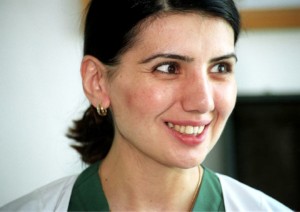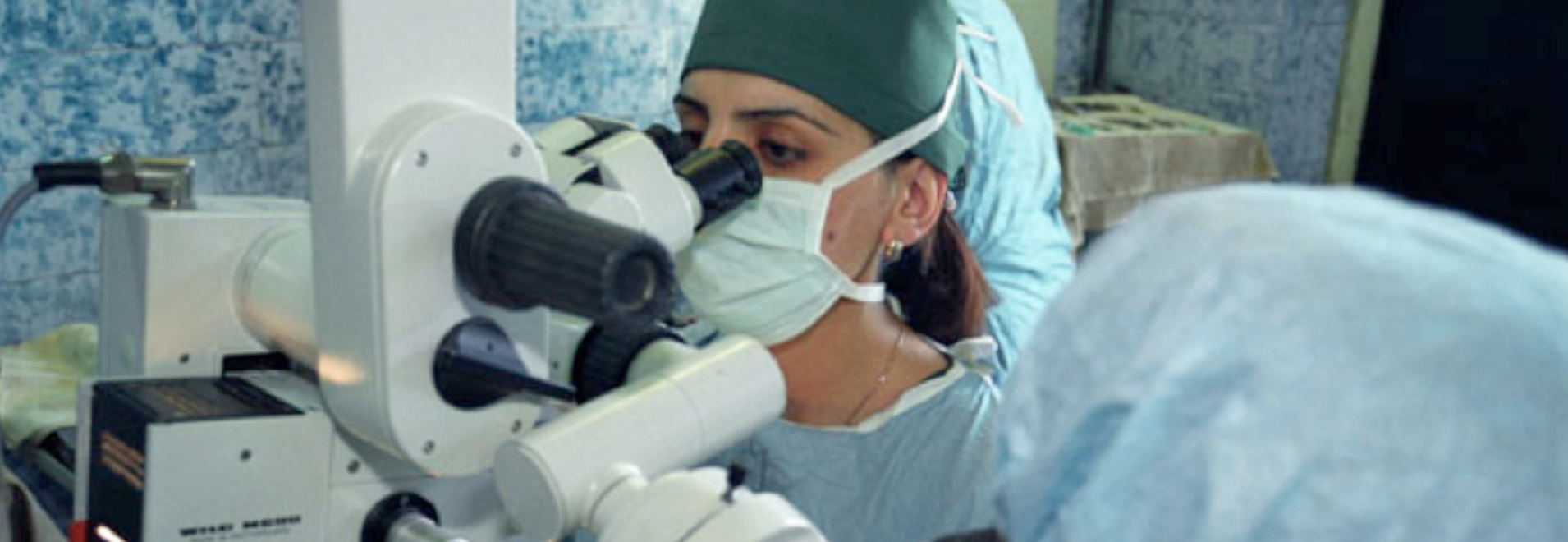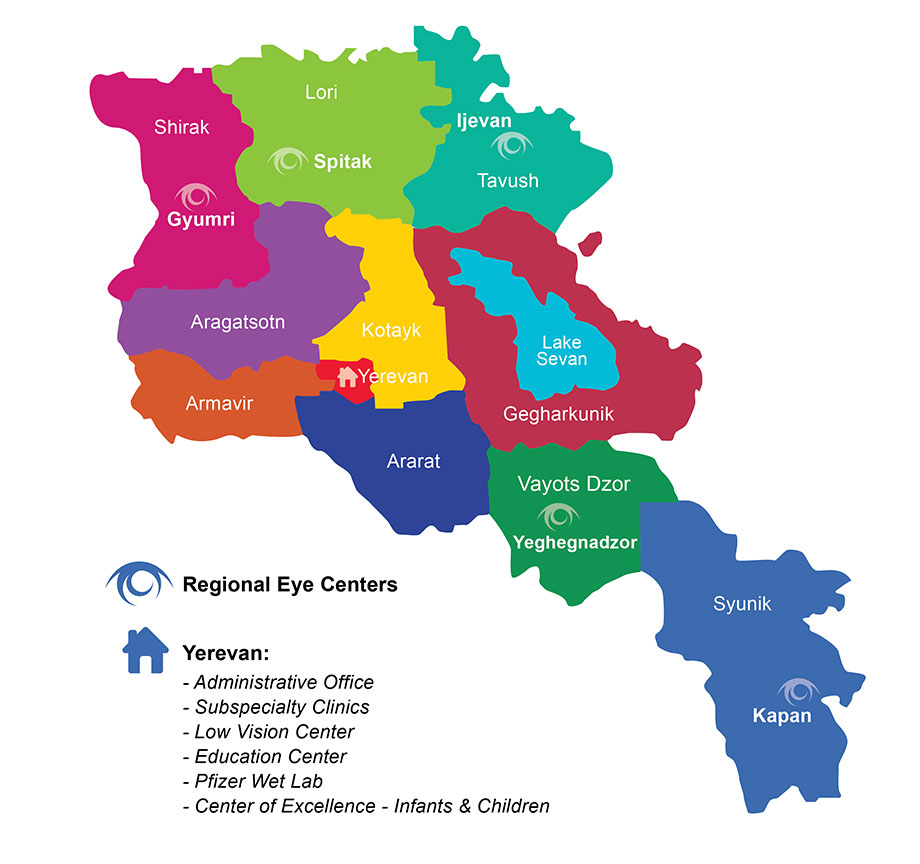Doctor Mom

In theory and in practice, Dr. Armine Gharakeshishyan made the most of her one-year AECP fellowship abroad.
For the first six months, she learned about neuro-ophthalmology and orbital surgery (facial reconstruction) under the auspices of Dr. Steven Feldon, Director of the University of Rochester Eye Institute in New York. For the remaining six months, Gharakeshishyan applied what she learned by performing surgeries at the LV Prasad Eye Institute in Hyderabad, India.
She feels this hands-on experience in India helped her become a more experienced surgeon, especially in orbital surgery. Now, Dr. Gharakeshishyan runs the Neuro-Ophthalmology and Orbital Surgery Clinic at the Malayan Ophthalmological Center in Yerevan.
She’s quick to thank Dr. Feldon, AECP Founder Dr. Roger Ohanesian and Dr. Alex Malayan for turning her wishes into a reality.
“It’s wonderful to return vision to a blind patient,” Dr. Gharakeshishyan says. “The most beautiful thing in our life is to see the bright sun and the blue sky. I understand how important that is.”
During her time in India, Dr. Gharakeshishyan says she was confident in her abilities to treat the pathologies she encountered in the country because of the extensive knowledge she gained spending the former six months under the tutelage of Dr. Feldon.
She also considers herself very fortunate to have the opportunity to work with Dr. Honavar, Chief of Oculoplastics, and Dr. Naik, surgeon at the LV Prasad Institute.
“They taught me all the secrets of a beneficial outcome,” Dr. Gharakeshishyan explains, adding that “it is very different learning the surgery theoretically and doing it yourself practically.”
Gharakeshishyan says her schedule in India was very tough, starting her days at 7 a.m. and often finishing around 7 or 8 p.m. — and sometimes later — all the while working seven days a week. During this time, Dr. Gharakeshishyan would examine more than 50 patients a day in the clinic, was assigned the responsibility of chief surgeon in a handful of cases and assisted in surgeries in over 10 other cases.
Despite the immense amount of surgical skills learned in India, Dr. Gharakeshishyan was happy to come home to Armenia at the end of her fellowship. Referring to it as “my Yerevan,” she is proud of Armenia, its people, and its ancient history — calling the country an “open museum under the sky.”
Born in Yerevan in 1973 to mother, Anik, and father, Firdusy, Armine comes from a medical family. Her sister, Susanna, is an endocrinologist, brother Karen is a dentist, and her uncle is a physician. She married her husband, Davit, in 2002 and gave birth to her daughter, Kristine, in 2003.
Proud to be a mother, Gharakeshishyan calls the birth of her child “the happiest day in my life.” She adds, “I felt that I could not live without my baby though she was only one day old.”
Still, her job as a physician is very demanding and while Kristine was a baby, it was very hard for her to part with her child. “The hardest thing about being a working mother is worrying that my baby is waiting for her mother,” she says.
In fact, when Dr. Gharakeshishyan traveled to India for the second half of her year-long fellowship, she left her then-seven-month-old daughter in Yerevan with her mother-in-law.
“It was the most difficult decision of my life,” she recalls, adding that it particularly stung when Kristine celebrated her very first birthday without her.
Still, Dr. Gharakeshishyan acknowledges that it would have been “impossible” to care for her baby in India — in the midst of a demanding surgery and fellowship training schedule.
“Although the separation was very painful, we believe that the decision was absolutely right,” she says.
Gharakeshishyan looks back on her fellowship with a flood of emotion: “Every day has been full of new experiences and so incredibly interesting that it’s difficult to separate one memory from another.”
She is grateful for the opportunity to work with Drs. Feldon, Honavar and Naik in the “best clinics in the world” — “so different in their style of work, but equal in their level of professionalism,” she says.
And to all those who made her fellowship possible, Dr. Gharakeshishyan says, “I am very grateful for this learning opportunity that so few are fortunate enough to experience.”
As for her most favorite memory, Dr. Gharakeshishyan says it was performing her very first surgery.
“I was very happy and proud to see the good results and smiles of my patients,” she says. Dr. Gharakeshishyan continues to work at the Malayan Ophthalmological Center in Yerevan to see many more good results — and patients’ smiles.







